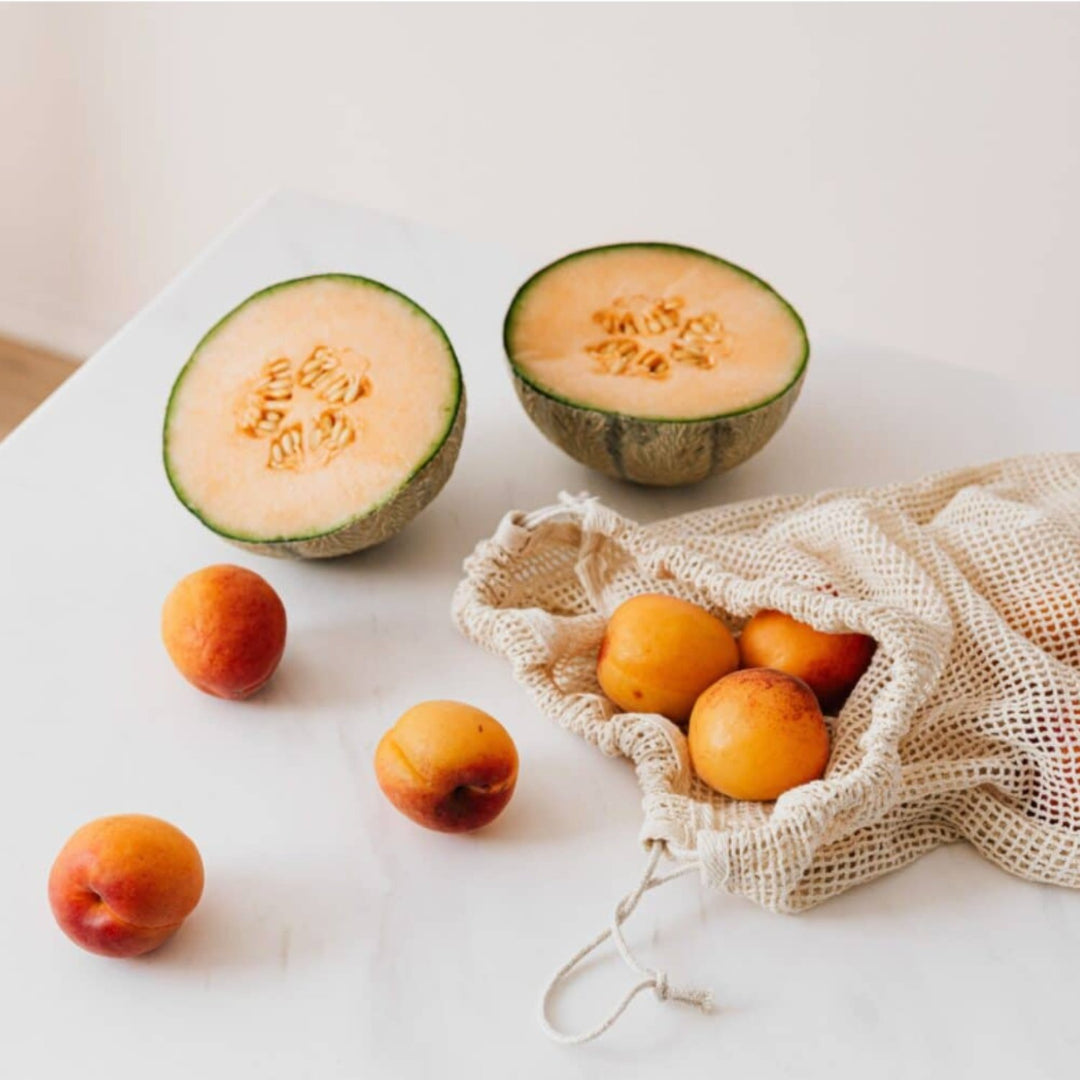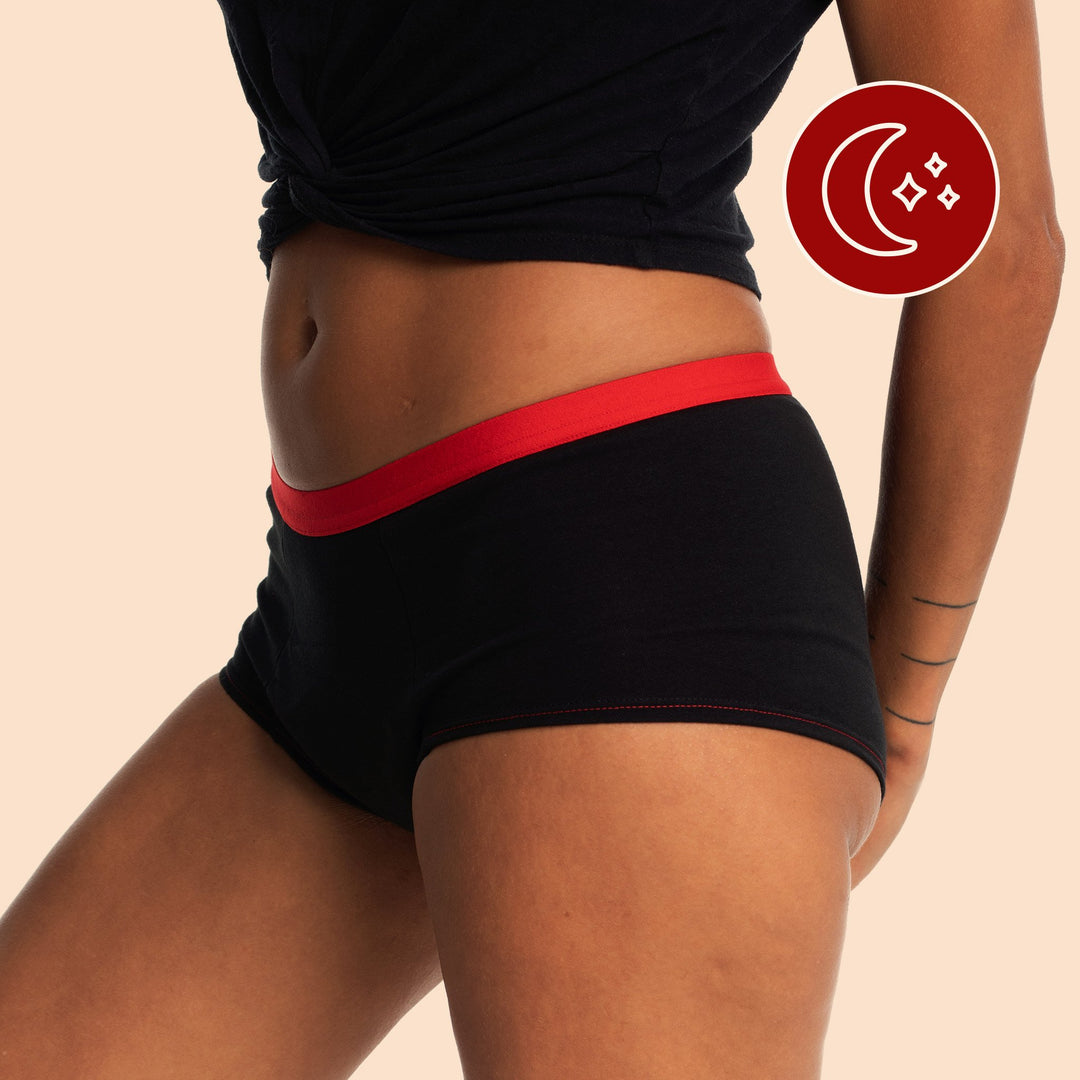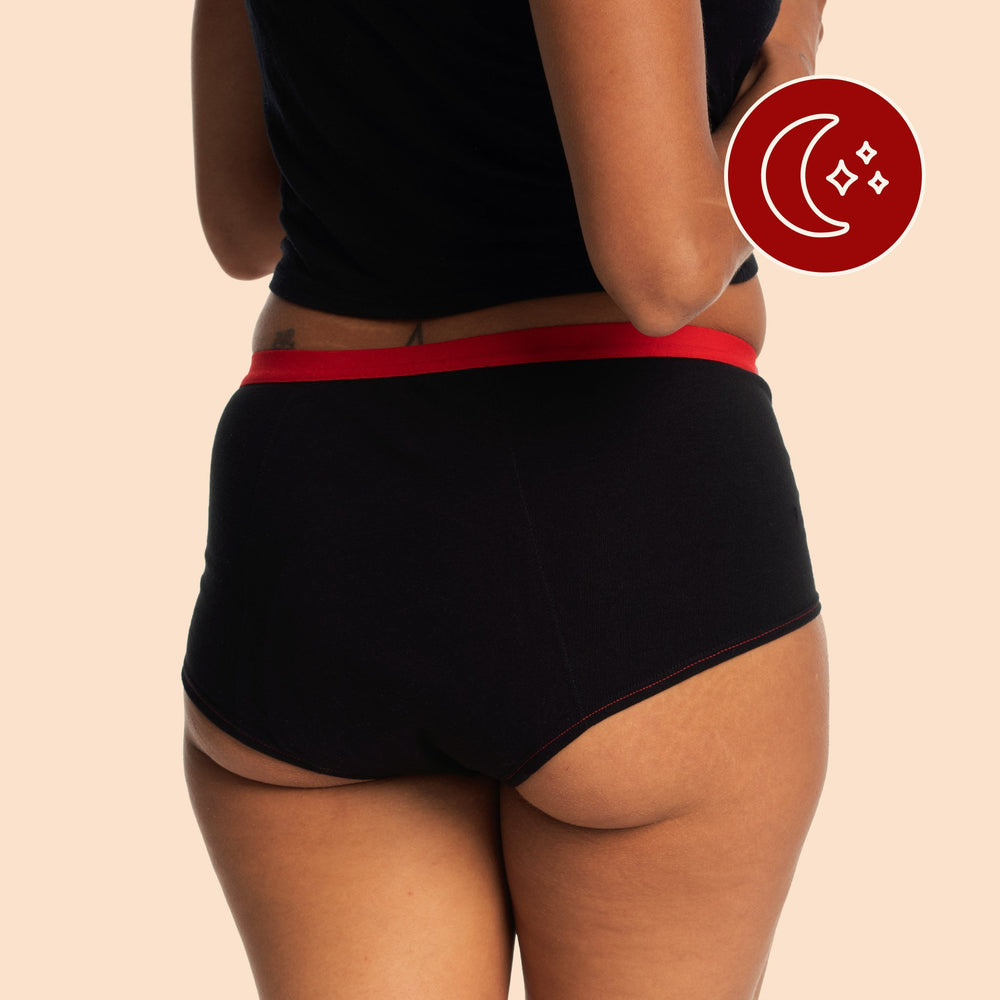This article includes everyone who menstruates, including cis women, trans men, and non-binary or gender-fluid people.
All right, it's the time of the month: they're on their period.
Hello to you, partner of a menstruating person. Have you ever found yourself curious or confused enough about your lover's hormonal changes to go online and look up phrases like "what to say to a girl when she's on her period" or "bad mood period solution"?
It's okay. The hormones that accompany the menstrual cycle cause many physical and psychological symptoms in menstruating people. Even for us, it's not always easy to deal with it all!
But when you really get to know yourself and your partner, menstruation gets much easier to deal with in a caring way, and you can work together to make these cycles more positive and enjoyable. I promise!
Let's start with a quick tour of the 4 stages of the menstrual cycle and what they mean in terms of energy, emotions, and mood.
Please note that everyone experiences menstruation in a very personal way, and these guidelines are not a panacea for understanding all menstruating people!
At the same time, some of these tips can make this transformative cycle easier to understand for someone who doesn't experience it every month.

The stage of the menstrual cycle
The average length of the menstrual cycle is 28 to over 30 days, and it varies from person to person. Like the seasons in a year, it is divided into 4 phases, each with its own characteristics, benefits, and challenges.
1. Menstruation: Winter
Menstruation is a slow time. It's a time when they want to sleep a little more, stay warm, and do their own thing. It's a great time for introspection, for letting go, and for exploring intuition!
But for lots of people, it's also a time of cramps and dealing with menstrual flow. For some of us, this can be normal, even pleasant, with comfortable and pretty menstrual solutions that the rest of us can't wait to get back to (shoutout to my L'Ovaries), but for others, life can be really difficult.
So it's back to the menstrual mind load (which we encourage you to lighten by changing your mindset).
They have to remember to bring their pads to work, endure or treat their cramps, throw away or wash used pads, pay particular attention to intimate hygiene for sexual relations (some people are uncomfortable at the sight of menstrual blood), deal with bloating, deal with water retention, deal with other symptoms, avoid or manage leakage. . . . On and on it goes.
2. Preovulation: Spring
In the preovulatory phase, they come out of winter hibernation. Their energy returns and peaks at ovulation. They feel confident, the less pleasant symptoms of menstruation disappear, and they're in a good mood, ready to get back to work.
This is the time they communicate and plan projects because they're more settled and open, and they're enjoying a clarity of mind.
3. Ovulation: Summer
This is when their energy is at its peak. They're in love with everything: you, life, their friends. . . . They're more active, and they want to make plans, take action, see people. On day 14 or thereabouts, their fertility peaks, which can sometimes create a renewed sexual desire and a desire for closeness.
In short, life is good.
4. The luteal phase: Fall
The much-maligned luteal phase brings on the infamous PMS (premenstrual syndrome) days for women and menstruating people. Their energy drops off, and compared to the previous phase, life can be disappointing, even guilt ridden: "Come on, I was so productive last week. What's happening to me?"
Caused by hormonal chaos, PMS can trigger a range of emotions and physical sensations like anxiety, irritability, obsessive thoughts, hypersensitivity, depression, and generally a fairly bad mood before the period.
Physically, they start feeling bloated again, and they might get pimples, headaches, and backaches. They might also feel increased sensitivity to pain, and they'll probably experience a lot uncontrollable cravings, more sensitive breasts, insomnia, and digestive problems.
Cool, eh?
One thing to keep in mind is that the "bad period mood," usually a symptom of PMS, is often both hormonal and mental. They tend to judge themselves (their reactions as well as their appearance) more harshly and be more impatient with themselves and others.
But PMS days are also very connected, creative, and intuitive. If they're able to welcome them, those days can offer moments of great tenderness, sensitivity, and connection with themselves and with others.
NOTE: Hormonal changes influence their emotions and physiology, but they remain as intelligent and rational as ever, even if they sometimes act a little differently.
Understanding the menstrual cycle also means respecting menstruating people despite mood changes and seeing them as cyclical beings.
They develop superpowers at different times of the month to organize themselves, take action, spread joy and love all around, and, sometimes, take a break from being so amazing.
To learn more about the menstrual cycle, you can read this article here.
What to do when your partner is on their period (and other times too)
First of all, take an interest, as you're doing now by reading about it, and talk about it together. Not all of their being revolves around their cycle, but it's an important part of who they are, so you might as well look into it!
1. Don't make everything about their period, but don't dismiss it either
Their emotions are valid! Never downplay how they feel because of their cycle. Their emotions, while sometimes more intense, are legitimate. Their periods should never be used against them. Period. We've all heard the old "Is it that time of the month again?" And yeah, we're sick of it.
Understanding is not only being gentle but believing in what you're doing while you're doing it.
2. Ask them what you should do
Everyone experiences menstruation differently. The preferences and behaviour of a menstruating person can be completely different from one to another.
The first thing to do is to open a dialogue and ask them what would make them feel better.
Some people prefer solitude and need their own private space, while others need affection during menstruation as much or more than usual and appreciate the comforting closeness of a partner.
3. Manage it together
If you're interested and your partner is comfortable, share through a calendar, anapp, or just by texting when they're on their cycle.
This will make it easier for you to talk, and it might even make it easier for you to plan certain activities, like slowing down your social life and family or work commitments.
In addition, it allows you to be proactive if you wish to accompany them in a more organic way.
Help them manage their physical symptoms
It can't be said often enough: there's no ONE experience for periods, especially since the normal physical symptoms of menstruation are multiple and vary greatly depending on the person They include:
- Sensitive breasts
- Bloating
- Water retention
- Muscle pain
- Joint pain
- Headaches
- Acne
- Abdominal cramps
- Diarrhoea or constipation
- Lower-back pain
- Difficulty sleeping
- Lack of energy, fatigue
To help your partner feel better about their body, you can try some of the tips below.
1. Make them a herbal tea when they have cramps
Some herbs are traditionally good for the menstrual cycle. Coupled with good hydration (you can also bring them glasses of water throughout the day) and the comfort of a warm drink, you can be sure you'll be doing a bit of good!
You can find these herbs individually or in blends in health food and tea shops, but if you're looking for something more convenient, you can also find them in Mme L'Ovary's Goddess Tea (vegan, organic, and handmade in Quebec in partnership with Clef Des Champs).
Herbal remedies for menstrual pain
- Raspberry - Rubus idaeus leaf
- Nettle - Urtica dioica, leaf
- Green oat - Avena sativa, green flowering stem
- Peppermint - Mentha x piperita, leaf
- Lemon balm - Melissa officinalis, leaf
2. Run a bath or heat a hot water bottle
"Honey? I've run you a nice hot bath": minimum effort for maximum gratitude, and the dream of every bath-loving menstruating person!
A magic bag or hot water bottle also does a lot of good to relieve menstrual cramps or muscle and joint tension.
3. Give them a massage
Whether it's to relieve stiffness in the neck, shoulders, lower back, or stomach, a massage (if your partner wants it of course) can be an effective and much-appreciated gesture, and it can offer a welcome moment of relaxation.
4. Make a warm, cozy meal
For menstruating people with particularly painful periods, their appetite may not be there, and the courage to make a healthy home-cooked meal to warm up from the inside just isn't going to happen.
Cooking them something, or order up a big Thai soup.
5. Go take a walk
Without mothering them, you can offer to come on a walk or go to morning yoga. Gentle or moderate exercise can help the pain, but sometimes it's just too hard to do on their own.

6. Wash their period underwear or pads
Knowing that you don't mind and that you're open enough to helps is even more valuable than the wash itself. After all, menstrual blood isn't dirty or shameful!
7. Give them an orgasm
The endorphins released during orgasm help reduce menstrual cramps. While not everyone is comfortable having period sex (and that's fine), those who are shouldn't be deprived!
Help them through their PMS
The "bad mood during menstruation" that everyone talks about isn't really a matter of menstruation. As we've seen above, it's more about the luteal phase of our cycle, the hormonal Big Bang.
Basically, the best way to accompany your partner through this phase is to be kind, attentive, and gentle, even if they don't always return the sentiment.
If they need space and solitude, go do something outside and send them a quick text to show them you're thinking of them. And then you can bring home a hot chocolate or something sweet for after.
If not, have a movie, gaming, or reading night at home. It's always a good idea to have a laugh in bed or on the couch.
You can also take a little more on your shoulders, knowing that they'll repay you in the spring and summer of their cycle, which is always just around the corner.
You can be comforting, whether it's about their feelings or their physical appearance. A little compliment (real, not made up for the sake of it) can do wonders when someone's not feeling their best!
Good luck out there, and thanks for reading!























